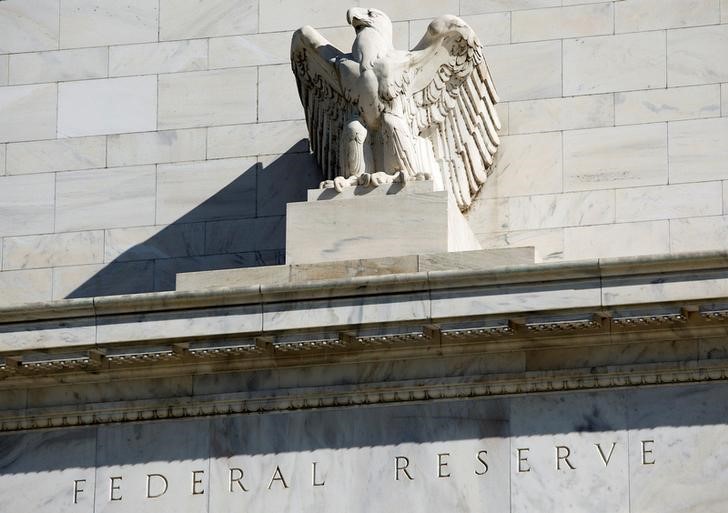By Andrew Torchia
DUBAI (Reuters) - Bucking years of tradition, some central banks in the Gulf's wealthy oil exporting countries may cautiously diverge from U.S. monetary policy this week as the American central bank pushes up interest rates, bankers say.
The U.S. Federal Reserve is widely expected at a meeting on Wednesday to raise rates by 25 basis points to a 1.50-1.75 percent range. With their currencies closely linked to the U.S. dollar, Gulf central banks would normally be likely to lift their own policy rates immediately by the same margin.
But higher U.S. rates are coming at an awkward time for the Gulf, where low oil prices and austerity steps are dragging on economic growth, and real estate markets are slumping.
That is likely to prompt Gulf countries to go slow on raising interest rates when they think they can avoid inviting speculative pressure on their currencies, commercial bankers in the region say.
Some believe two countries in particular -- Qatar and Kuwait -- may refrain from raising key rates in the aftermath of a U.S. hike on Wednesday.
"Their economies are growing only slowly and asset prices have been under pressure. Apart from the issue of currency stability and capital flows, it increasingly doesn't make sense for them to raise interest rates," said one banker.
Speculation that Saudi Arabia might hold off on hiking rates helped to drive the three-month Saudi interbank offered rate
The Saudi central bank, concerned that too large a negative spread could fuel capital outflows, responded last week by taking the highly unusual step of raising interest rates ahead of the Fed, and the gap has almost disappeared.
Commercial bankers think that as long as the central bank can prevent a large, negative spread re-emerging, it will hesitate to raise interest rates again in coming months, even as the Fed is expected to hike at least three times in 2018.
EMBARGO
Assem Saleh Algursan, director of the policy and financial stability department of the central bank, indicated that monetary authorities were focused on stability but as long as it was preserved, they could operate with some independence.
"It is not a must that decisions coincide with that of the Federal Reserve," he told Al Eqtisadiah newspaper this week.
Qatar may have more room to diverge from Fed policy in the near term. Its three-month interbank rate
In the months after Arab states imposed an embargo on Qatar last June, Doha struggled to cope with capital outflows and maintain confidence in its currency. But in the last several months, capital flight has essentially ended and pressure on the riyal has faded.
"We believe that given signs of banking sector stability (including capital inflows) and the headwinds to the non-oil sector, the repo rate could be kept steady this time," said Monica Malik, chief economist at Abu Dhabi Commercial Bank.
In Kuwait, the three-month interbank rate
Kuwait may be able to sustain a negative spread because its huge financial reserves appear to remove the risk of any run on its currency. Spreads have stayed deeper in negative territory for several multi-month periods in the past.

Bankers generally expect the United Arab Emirates, Bahrain and Oman to imitate any U.S. hike on Wednesday. The UAE's economy is relatively strong, while the state finances of Bahrain and Oman are the region's weakest, meaning any failure to raise rates could invite pressure on their currencies.